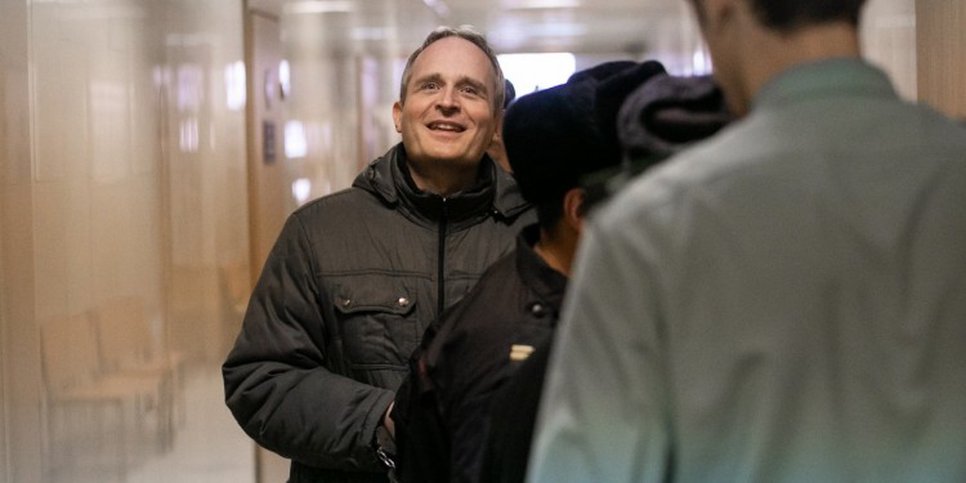Photo: Dennis Christensen at the Oryol Railway Court (January 2019)
Photo: Dennis Christensen at the Oryol Railway Court (January 2019)
Jehovah's Witnesses consider court decisions against them to be unlawed
Oryol RegionOn February 6, 2019, Dennis Christensen, a resident of Orlov, was sentenced to 6 years in prison on the grounds that the Supreme Court of the Russian Federation liquidated the local religious organization of Jehovah's Witnesses "Orel", like hundreds of other organizations of this religion, considering that it was engaged in extremist activities. Jehovah's Witnesses consider 1) Christensen's conviction, (2) the Supreme Court's decision to liquidate religious organizations, and (3) the entire decision to recognize Jehovah's Witnesses' Christian books as "extremist materials" to be unfounded and unjust. Why?
Why is Christensen's conviction unjust? Because it contradicts the Russian government's own legal position presented to the ECHR: "The authorities of the Russian Federation emphasize that the decision of the Supreme Court of the Russian Federation of April 20, 2017 and the appellate ruling of the Appellate Board of the Supreme Court of the Russian Federation of July 17, 2017 do not assess the doctrine of Jehovah's Witnesses, do not contain a restriction or prohibition to practice the above teaching individually." The Russian government's explanation at the UN Human Rights Committee reads as follows: "The decision [of the Supreme Court of the Russian Federation] does not restrict the right of citizens to freedom of religion. Members of the liquidated organization have the opportunity to practice their beliefs independently, provided that they do not distribute literature with extremist content or otherwise participate in illegal activities." The court's mistake lies in the fact that the court interpreted the ordinary, lawful activities of Dennis Christensen as "organizing the activities of an extremist organization."
Why are the decisions of the Supreme Court on the liquidation of religious organizations unjust? Because they are based on falsified "evidence" that the Supreme Court took on faith. In 2015-2016, there was an epidemic of similar planting of prohibited materials in the worship buildings of Jehovah's Witnesses and subsequent discoveries in the regions of Russia, which was often recorded on surveillance cameras. Lower-level courts dismissed protests from believers and imposed fines on communities, but later the Supreme Court of the Russian Federation gave those decisions prejudicial force and formally liquidated all organizations of Jehovah's Witnesses. This led to the seizure of hundreds of worship buildings worth over 6 billion rubles from believers, as well as to criminal cases and imprisonment of dozens of people.
Why are court decisions to recognize the Christian books of Jehovah's Witnesses as "extremist materials" unjust? Since 2009, books have been included in the Federal List of Extremist Materials (FSEM) for the most innocuous statements, for example: "People worship many things. But the Bible says that there is only one true God. Not all beliefs and customs are bad. But God does not approve of those that come from false religion and contradict biblical teachings." The reason for the ridiculous decisions is the vague definitions of "extremism" in the law and the obvious incompetence or bias of the judges, who considered "extremism" the belief of Jehovah's Witnesses in the truth of their religious choice.
"The inclusion of books of Jehovah's Witnesses in the FSEM is the only reason for accusations of extremism brought against our fellow believers in Russia," says Yaroslav Sivulsky of the European Association of Jehovah's Witnesses. - The Supreme Court of Russia was able to distinguish the wheat from the chaff in a timely manner, but did not do so. This has caused irreparable suffering to thousands of people whose entire fault is their faith. They hope that the Russian authorities will find the courage to correct mistakes and restore the rights of innocent people.

